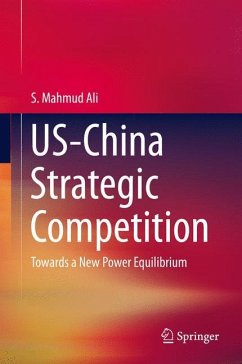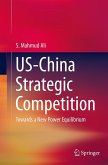This book examines the nature and consequences of strategic competition between the US and China, which affects the global security landscape and the emerging security architecture across the broader Asia-Pacific region. The author illustrates the evolution of Sino-US security interactions from the anti-Soviet alliance, to temporary marginalization, to eventual strategic competition and examines cases that could potentially escalate into greater conflicts. The analysis offers tantalizing glimpses into both the dangers and promising opportunities presented by this strategic fork in the road, making it of great interest to researchers and scholars in the fields of international relations and security studies.
Bitte wählen Sie Ihr Anliegen aus.
Rechnungen
Retourenschein anfordern
Bestellstatus
Storno








